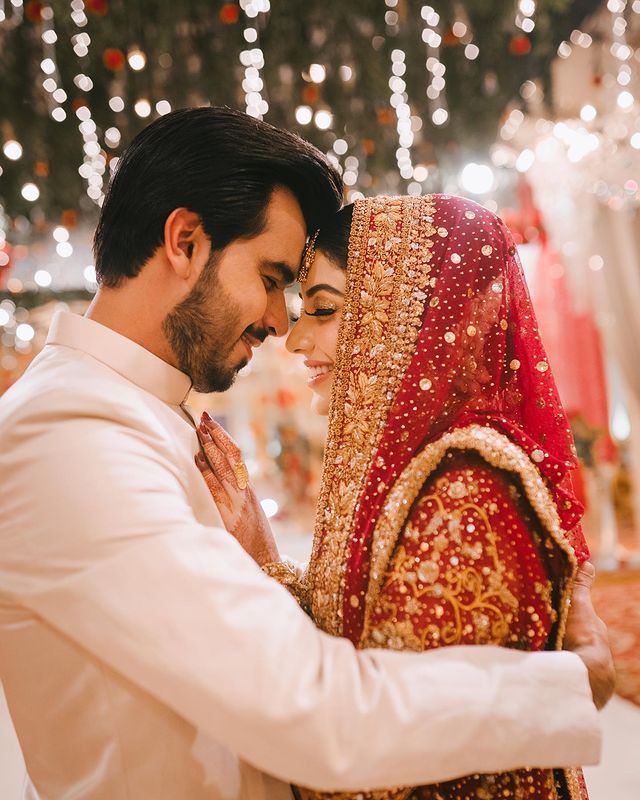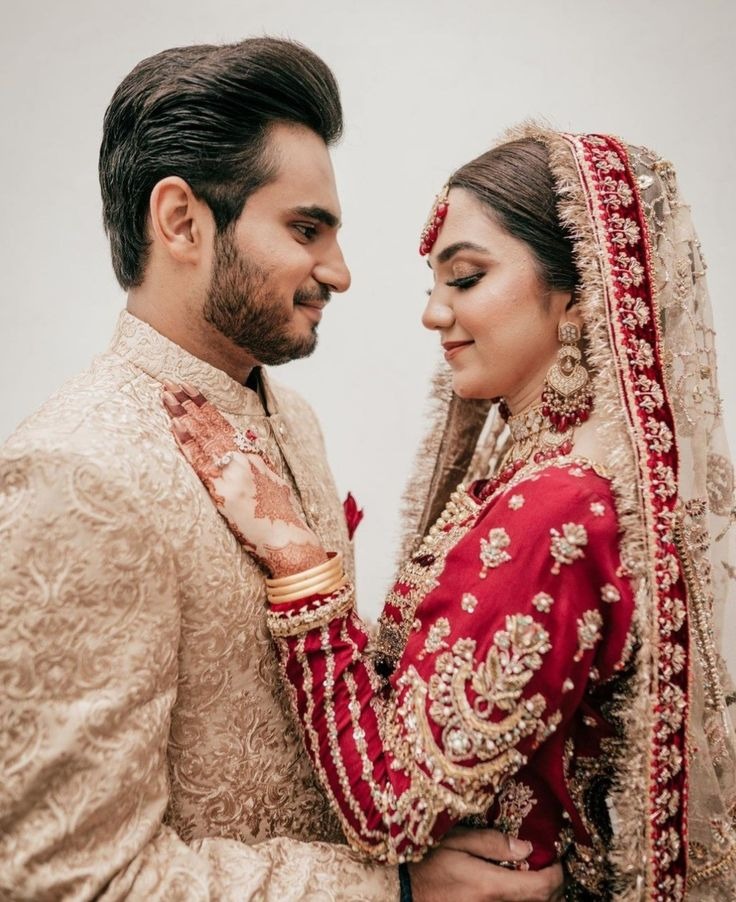How Do You Know If the Other Party Is Really Interested?
How Do You Know If the Other Party Is Really Interested?

How Do You Know If the Other Party Is Really Interested? Understanding True Interest in Relationships: Signs, Signals, and Reality Checks
In the realm of relationships, whether it’s a budding romance, a marriage proposal, or a deepening friendship, one of the most confusing questions is: How do I know if the other person is truly interested? Misreading signals can lead to heartbreak, wasted time, or missed opportunities. On the flip side, recognizing genuine interest can give a relationship the direction and confidence it needs to grow.
This blog post dives into the psychology, body language, communication patterns, and emotional cues that help you decode the intentions of the other party—so you can move forward with clarity and confidence.
How Do You Know If the Other Party Is Really Interested?
Table of Contents
1. The Importance of Recognizing True Interest
2. Why Mixed Signals Are So Common
3. 13 Reliable Signs That Show Genuine Interest
4. Digital Cues: Interest in the Age of Screens
5. What If You’re Still Unsure?
6. False Positives: Signs That Seem Like Interest But Aren’t
7. How to Test Their Interest Without Being Obvious
8. When to Walk Away
9. Final Thoughts
1. The Importance of Recognizing True Interest
Knowing whether someone is genuinely interested is not about playing games or feeding insecurity—it’s about emotional safety, time management, and healthy expectations. A relationship built on assumptions or illusions can be emotionally exhausting. In contrast, one grounded in mutual interest creates stability, emotional fulfillment, and future planning.
Especially in marriage-related contexts (like matchmaking or dating for marriage), clarity on mutual interest is crucial. Misinterpretations here can lead to deep emotional entanglements, family misunderstandings, or even societal pressures.
2. Why Mixed Signals Are So Common
Before jumping to conclusions, it’s worth understanding why people sometimes send confusing or inconsistent signals:
• They’re unsure themselves. Sometimes, the other party is still figuring out their own feelings.
• Fear of rejection. They might be interested but hesitant to show it clearly in case you don’t feel the same.
• External influences. Family, social pressure, or previous trauma may cause someone to behave cautiously.
• Games and manipulation. Some people intentionally send mixed signals to test your commitment or to keep their options open.
• Cultural or personal differences. What counts as interest in one culture might be considered polite behavior in another.
Mixed signals don’t always mean a lack of interest—but they do require you to dig deeper.
3. 13 Reliable Signs That Show Genuine Interest
1. They initiate communication regularly
If the person texts, calls, or messages you without always waiting for you to start first, it’s a sign they want you in their life.
2. They remember small details
When someone remembers what you like, dislike, your goals, your past experiences—that’s more than politeness. It’s intentional attention.
3. They ask meaningful questions
Surface-level chats are easy. But when someone asks about your values, dreams, or family, they’re investing emotionally.
4. They make plans involving the future
If they talk about “we” in the future—whether it’s next month’s plans or long-term dreams—they’re mentally including you.
5. They’re available even when it’s inconvenient
Genuine interest shows when someone is there during your bad days, not just your exciting ones.
6. They show consistency
Interest is not about intensity one day and silence the next. A truly interested person shows consistent behavior over time.
7. They introduce you to important people
When someone includes you in their inner circle—friends, family, mentors—it’s a strong sign they see a future with you.
8. They seek emotional intimacy
Opening up about fears, flaws, or childhood isn’t easy. If they’re vulnerable with you, that’s deep interest.
9. They prioritize you
You don’t always have to be first, but you’re never an afterthought. If they adjust plans or compromise for you, it’s meaningful.
10. They express jealousy in healthy doses
Jealousy, when not toxic, can be a sign of care. If someone gets slightly affected when you talk about others, they’re emotionally invested.
11. They give you compliments that go beyond appearance
Anyone can say “you look nice.” But if they appreciate your work ethic, your thoughtfulness, or your humor, they see you.
12. They mirror your emotions
When someone feels happy when you’re happy, or sad when you’re down, they’re emotionally tuned in.
13. They talk about commitment openly
Someone who’s truly interested will at some point express a desire for clarity—whether it’s exclusivity, engagement, or marriage.
How Do You Know If the Other Party Is Really Interested?
4. Digital Cues: Interest in the Age of Screens
With relationships increasingly starting or thriving online—through dating apps, social media, or marriage websites—decoding interest in digital form is essential.
Positive digital signs:

• They reply promptly (most of the time)
• They send thoughtful messages, not just emojis
• They initiate video calls or voice notes
• They comment meaningfully on your posts
• They remember and follow up on things you’ve shared online
Watch out for:
• Seen zones (your messages are consistently seen but ignored)
• Always chatting at odd hours only
• Long gaps without explanation
• One-word replies or generic emojis
Remember, digital chemistry must eventually translate into real-life interaction and emotional connection.
5. What If You’re Still Unsure?
Sometimes, even after noticing signs, uncertainty lingers. In such cases, consider the following:
• Have an honest conversation. Ask where the relationship is going. You deserve clarity.
• Give it time—but not forever. Some people are slower to open up. But if interest doesn’t grow with time, that’s a sign.
• Trust patterns, not moments. One sweet gesture doesn’t define interest. Look at overall behavior.
6. False Positives: Signs That Seem Like Interest But Aren’t
Be careful not to confuse kindness, attention, or politeness with romantic or serious interest. Here are common traps:
a) They like all your social media posts
This could just mean they enjoy your content, not necessarily you.
b) They flirt with everyone
If they act the same way with others, don’t assume you’re special.
c) They’re bored or lonely
Sometimes, people engage deeply because they’re lonely—not because they’re invested.
d) They seek favors or validation
Some use emotional closeness to extract help, attention, or approval.
e) They’re afraid to say no
Some people don’t want to hurt others, so they act interested even when they’re not.
Stay alert. Mixed signals can drain your energy and confuse your emotional boundaries.
7. How to Test Their Interest Without Being Obvious
Without turning your relationship into a lab experiment, there are subtle ways to gauge someone’s true feelings:
1. Step back a little
If you reduce your efforts slightly, do they notice and respond?
2. Say no occasionally
If you decline plans, do they try to adjust or lose interest?
3. Talk about boundaries
Do they respect your emotional and physical limits?
4. Share your goals
If you mention long-term relationship desires, do they lean in—or disappear?
5. Watch how they treat others
People who are genuinely kind and consistent across the board are more likely to be sincere with you, too.
8. When to Walk Away
If you’re constantly anxious, confused, or hurt—it may not be worth holding on.
Here are red flags to walk away from:
• They never commit or clarify intentions
• You’re always initiating, they rarely reciprocate
• They’re emotionally unavailable or inconsistent
• They disappear without explanation and return when convenient
• You feel undervalued or like an option
Your time, energy, and love deserve to be invested in someone who is equally interested in you.
9. Final Thoughts
Genuine interest is not about constant excitement or butterflies—it’s about consistency, effort, emotional safety, and shared vision. Whether you’re evaluating a romantic partner, potential spouse, or a growing connection, don’t settle for maybes.
Trust your intuition, observe their actions, listen to their words, and don’t be afraid to seek clarity. The right person will not leave you guessing.
10. Cultural, Gender, and Personality Factors That Influence How People Show Interest
Understanding whether someone is interested isn’t a one-size-fits-all assessment. Culture, gender roles, upbringing, personality types, and even trauma history can heavily influence how someone expresses (or withholds) interest.
a) Cultural Nuances
In some cultures—especially more conservative or collectivist ones—openly showing romantic interest may be discouraged or seen as disrespectful. A person might hold back until there’s a strong sense of mutual family or community approval. For example:
• In South Asian cultures, a woman may not express overt interest out of modesty or fear of judgment.
• In East Asian societies, subtle gestures—like remembering your tea preference or offering help—can mean deep affection.
• In Western societies, directness is more common, but even then, emotional vulnerability varies widely.
Tip: Always evaluate behavior in the context of their cultural background.
b) Gender-Based Communication Styles
Although not universal, research suggests that men and women may differ in how they signal interest due to societal conditioning.
• Men are often encouraged to be direct, confident, and initiators. But if a man is shy or insecure, his signals may be masked by fear of rejection.
• Women, in many cultures, are taught to be more reserved, nurturing, or passive in early stages, even if they’re genuinely interested.
This means if a man doesn’t approach or if a woman doesn’t open up, it’s not always disinterest—it might be hesitation or fear.
c) Personality Types
An extrovert might easily show interest—talking openly, making bold plans, initiating affection. But an introvert may express interest quietly:
• Offering thoughtful gifts
• Listening deeply
• Sharing vulnerabilities in private moments
• Showing up consistently without making a fuss
Similarly, someone with anxious attachment might over-pursue and seek reassurance constantly. Meanwhile, someone with avoidant tendencies may care deeply but withdraw to maintain emotional distance.
Understanding the lens through which the person operates is essential to reading the signals accurately.

11. Verbal vs. Non-Verbal Communication: Which Matters More?
Often, people say one thing but mean another. That’s where body language and non-verbal cues come in. According to communication studies, up to 93% of communication is non-verbal, especially when it comes to emotions and intentions.
Verbal Signals of Interest
• “I look forward to seeing you.”
• “Tell me more about you.”
• “I was thinking about what you said yesterday.”
• “How can I support you?”
• “You’re important to me.”
These kinds of verbal expressions suggest they are emotionally involved and investing mentally in the connection.
Non-Verbal Signals of Interest
1. Eye Contact: Extended, warm, and relaxed eye contact shows emotional presence.
2. Mirroring: They unconsciously mirror your posture, tone, or gestures.
3. Touch: Light, respectful physical contact (if culturally appropriate) is often a sign of affection.
4. Body Orientation: They face you fully, lean in, and give you undivided attention.
5. Facial Expressions: Smiling when they see you, softening their face when listening, or raising eyebrows slightly when surprised or impressed.
Note: If verbal messages and non-verbal cues don’t align, trust the body language more. For instance, someone saying “I like you” while checking their phone or avoiding eye contact may not be sincere.
12. How Long Should You Wait for Clear Signs?
This is a tricky but important question. The answer depends on context, stage of the relationship, and your personal values.
In Early Dating or Initial Talks:
• Wait at least 2–4 weeks to assess consistency.
• Don’t expect immediate declarations of love—but there should be increasing effort and curiosity.
• If after a month, you still don’t feel clarity, consider asking gently: “How do you feel about where this is going?”
In Marriage Proposals or Matchmaking Contexts:
• Intentions should be clear early on—within 3–5 meetings or conversations.
• Interest here isn’t just romantic—it includes compatibility, lifestyle alignment, and family openness.
• If someone is dragging the conversation endlessly without commitment or timelines, that’s a warning sign.
In Long-Term Relationships:
• Interest isn’t just shown in words but in continued effort—like resolving conflicts, checking in emotionally, and planning together.
• If interest seems to be fading, open discussions are crucial before drawing conclusions.
13. What to Do When the Other Person Seems Hot and Cold?
The infamous “hot and cold” behavior can be incredibly confusing. One day they’re affectionate and present, the next they’re distant or unresponsive.
Possible reasons:
• They’re emotionally unstable or insecure.
• They’re involved with someone else.
• They’re not ready for commitment but don’t want to lose you.
• They like the attention but don’t want the responsibility.
• They don’t know what they want—but are keeping you “just in case.”
How to respond:
1. Don’t ignore the inconsistency.
If it makes you anxious, speak up. Say something like:
“Sometimes I feel you’re very invested, and other times you seem distant. I’d love to understand how you’re feeling about this connection.”
2. Set boundaries.
Let them know that you value clarity and consistent communication.
3. Observe what happens after your conversation.
If they make an effort to be more present and respectful of your emotional space, they may have just needed a wake-up call.
4. But if it continues, walk away.
Someone who keeps you emotionally confused is not valuing your peace.
14. Is Silence Always a Sign of Disinterest?
Not necessarily. Some people withdraw when:
• They’re overwhelmed with emotions
• They’ve had a stressful day
• They fear they’re falling too fast
• They’re dealing with personal or family issues
But if silence lasts more than:
• A few days (in early stages), or
• A week or more (in deeper relationships),
…without a genuine explanation, it can be interpreted as emotional neglect or fading interest.
What to do:
• Reach out with care: “Hey, I noticed some silence lately. I hope everything’s okay. I’m here if you want to talk.”
• If they respond and explain, be compassionate.
• If they ghost you or give vague answers repeatedly, it’s better to stop chasing.
15. How to Ask Directly Without Sounding Needy
Clarity is confidence—not desperation. Asking where things stand is not wrong. It’s healthy.
Here’s how to do it:
“I really enjoy getting to know you and feel a good connection. I just want to understand how you’re feeling about us. Are we on the same page?”
OR
“I value clear communication. From your side, do you see this connection going somewhere?”
Remember:
• You’re not demanding love—you’re asking for truth.
• Someone genuinely interested will appreciate your honesty.
• If they dodge the question, that’s your answer.
16. The Power of Self-Reflection: Are You Open to Seeing the Truth?
Sometimes, we miss red flags or invent green ones—because we want the person to be interested.
Take time to reflect:
• Are you reading too much into polite behavior?
• Are you ignoring repeated patterns of neglect or avoidance?
• Are you romanticizing their potential instead of accepting their reality?
• Are you more invested than they are—and if so, why?
Facing hard truths is painful—but it saves you from greater heartbreak later.
17. When They Are Interested—but Scared
Genuine interest and emotional fear can co-exist. Some people want love but fear:
• Vulnerability
• Rejection
• Abandonment
• Disapproval from family or society
Signs they’re interested but scared:
• They light up around you but retreat when things get serious.
• They say “I’m not ready for a relationship right now,” but keep in touch.
• They avoid future talk but don’t want to lose contact.
What to do:
• Be patient, but don’t lose your own direction.
• Offer emotional safety, but don’t sacrifice clarity.
• If fear turns into long-term indecision, move forward. You deserve someone ready.
18. Bonus Checklist: Green Flags That Someone Is Truly Interested
✅ They respond with emotional presence
✅ They want to understand, not just impress
✅ They seek shared experiences, not just attention
✅ They speak about you proudly to others
✅ They support your goals, not compete with them
✅ They talk with you, not at you
✅ They’re emotionally generous, not manipulative
✅ They don’t leave you wondering
✅ They initiate—even after months
✅ They respect your timing, body, and heart
19. In Marriage and Matchmaking: Interest Must Include Intention
In contexts like matchmaking, arranged meetings, or family-led proposals—interest without intention is not enough.
Key questions to ask yourself:
• Are they discussing timelines, responsibilities, and compatibility?
• Have they involved their family or at least expressed intent to?
• Are they honest about their background, finances, and expectations?
• Are they only focused on your looks/status, or do they care about values?
If they’re dodging serious topics or always “waiting for the right time,” that might signal hesitation or avoidance.
Interest + Clarity + Action = Genuine Intention
20. Final Conclusion: When You Know, You Know
Genuine interest brings peace—not confusion.
• It’s not about guessing games.
• It doesn’t leave you checking your phone 50 times a day in anxiety.
• It doesn’t push you into emotional overdrive trying to earn love.
When someone is truly interested, they move toward you—not away. Their actions match their words. They make you feel valued, heard, and secure—not just excited.
So don’t settle for breadcrumbs or half-hearted gestures. The right connection won’t just feel good—it will feel clear.
Want Help Finding Someone Who’s Truly Interested?
At Gulshan Marriage Media, we specialize in helping people find real, meaningful connections—where interest comes with honesty, compatibility, and long-term vision. If you’re tired of games and want someone who truly values you, we’re here to help.
📞 Contact us today for confidential, trusted matchmaking.









